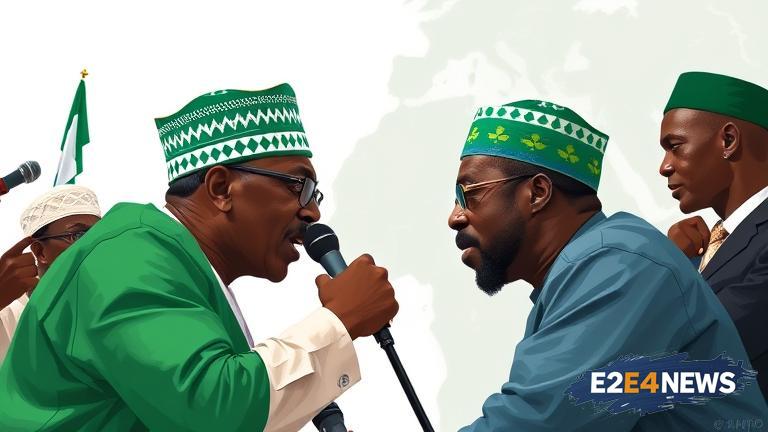The political landscape in Nigeria is becoming increasingly complex as the 2027 elections approach. The All Progressives Congress (APC) and the African Democratic Congress (ADC) have found themselves at the center of a heated debate over support from northern Nigeria and regional interests. The APC, which has traditionally enjoyed strong support from the north, is facing a challenge from the ADC, which is seeking to make inroads in the region. The ADC has been actively courting northern leaders and stakeholders, touting its commitment to regional development and the protection of northern interests. However, the APC has accused the ADC of attempting to divide the country along regional lines, and has vowed to defend its stronghold in the north. The clash between the two parties has significant implications for the upcoming elections, as the north is a crucial voting bloc. The APC is seeking to maintain its dominance in the region, while the ADC is hoping to make a breakthrough. The ADC has argued that the APC has failed to deliver on its promises to the north, and that it is time for a change. The party has also highlighted its plans to address the region’s developmental challenges, including poverty, insecurity, and lack of infrastructure. On the other hand, the APC has pointed to its achievements in office, including the implementation of policies aimed at promoting economic growth and reducing poverty. The party has also accused the ADC of lacking a clear vision for the country, and of being driven by selfish interests. As the debate between the two parties continues to escalate, it remains to be seen how the northern electorate will respond. The region has traditionally been a stronghold of the APC, but there are signs that the ADC is gaining traction. The ADC has been able to attract some high-profile defectors from the APC, including former governors and senators. The party has also established a strong presence on the ground, with a network of supporters and volunteers who are working to mobilize voters. Despite these gains, the APC remains confident of its ability to hold onto its support in the north. The party has a strong track record of delivering on its promises, and its leaders are well-respected in the region. However, the ADC is undeterred, and is continuing to push its message of change and development. The party has also sought to capitalize on the APC’s perceived weaknesses, including its handling of the economy and security. As the elections approach, it is clear that the clash between the APC and the ADC will be a major factor in determining the outcome. The two parties are likely to engage in a fierce battle for votes, with the northern region being a key battleground. The winner of the election will need to be able to appeal to voters across the country, including in the north. The ADC has argued that it is the only party that can truly represent the interests of all Nigerians, regardless of region or ethnicity. The APC, on the other hand, has pointed to its experience and track record as the best qualification for leading the country. Ultimately, the outcome of the election will depend on a variety of factors, including the performance of the economy, the state of security, and the ability of the parties to mobilize their supporters. The clash between the APC and the ADC is just one aspect of a larger and more complex political landscape, and it remains to be seen how the situation will unfold in the coming months.
